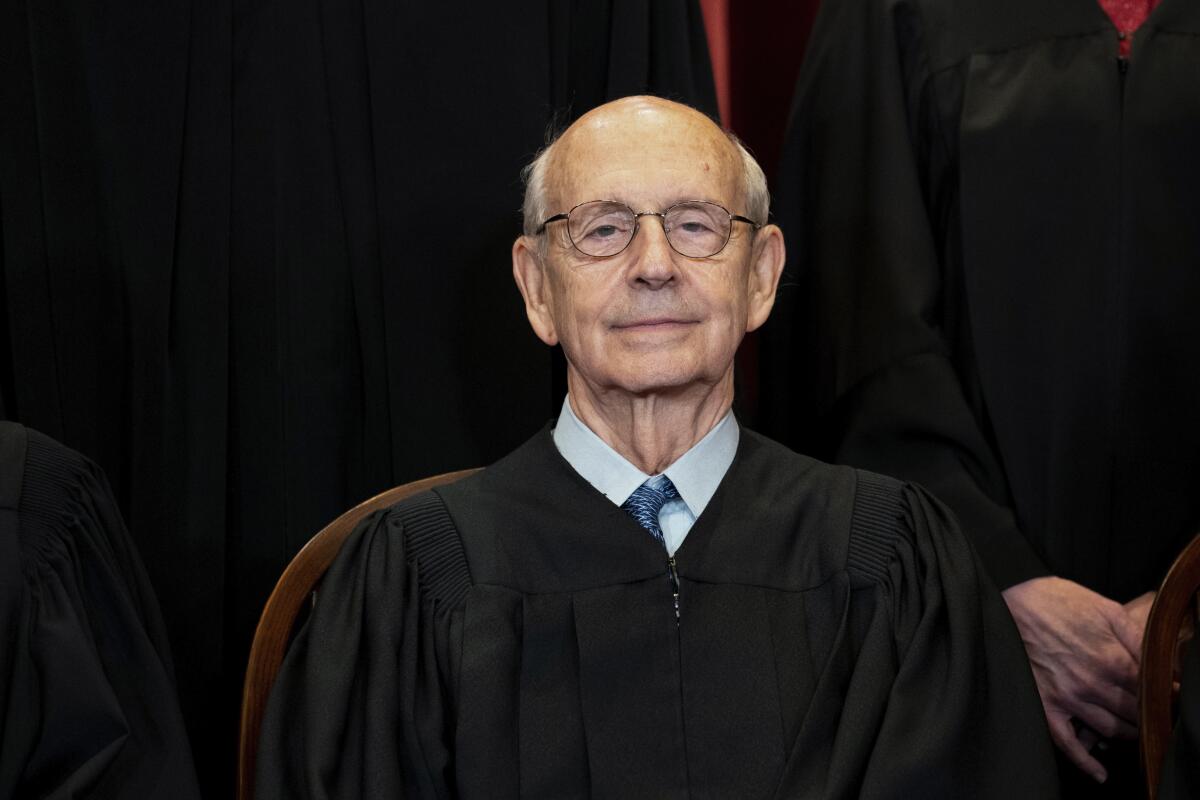Editorial: With rare exceptions, schools shouldn’t police kids’ online lives

- Share via
In a case that began with a teenager’s Snapchat rant against her cheerleading squad, the Supreme Court on Wednesday considered whether and when a school can punish students for what they say online when they aren’t in school. We hope that the court will say: very rarely.
In 2017 a student known in court filings as B.L. was upset when she failed to make the varsity cheerleading team at Mahanoy Area High School in Pennsylvania. While hanging out with a friend at a local store, she took a photo of herself and her friend raising their middle fingers and posted it on Snapchat. Accompanying the photo was this message: “F— school, F— softball, F— cheer, F— everything.”
Snapchat is designed to delete messages once they’re seen, but a screenshot of B.L.’s rant was shown to her cheerleading coaches. She was suspended from the junior varsity team. B.L. sued, alleging that the school had violated her free speech rights. She prevailed in the U.S. 3rd Circuit Court of Appeals in Philadelphia, which ruled that the school couldn’t punish her for “off-campus speech.”
In Tinker v. Des Moines School District, a landmark 1969 decision involving students who came to school wearing black armbands to protest the Vietnam War, the court declared that students in public schools don’t leave their free speech rights at the “schoolhouse gate.” But it also indicated that schools could punish students for speech at school that posed the threat of “substantial disruption of or material interference with school activities.”
At Wednesday’s argument the justices wrestled with the question of whether the advent of the internet had moved the schoolhouse gate — and the ability of schools to punish some student speech — into cyberspace.
Justice Amy Coney Barrett observed that “nothing in Tinker suggests ... that it applies outside of the school environment.” Nevertheless, Justice Stephen G. Breyer indicated that the court could find that schools have some authority over disruptive or dangerous speech outside the school. He added, however, that judges should remember that “it’s outside the school, and that’s primarily the domain of the parents.”
We agree that there are rare instances in which a school properly can punish students for online utterances, such as threats of violence or incessant bullying that turn the classroom into a hostile learning environment.
But the court shouldn’t erase the legal distinction between how students behave at school and how they act at home — even if they’re logging on to the internet in their bedroom to complain that their teacher is a moron or that homework is an abomination. As B.L.’s attorney David Cole eloquently put it, students shouldn’t have to “carry the schoolhouse on their backs in terms of speech rights everywhere they go.”
More to Read
A cure for the common opinion
Get thought-provoking perspectives with our weekly newsletter.
You may occasionally receive promotional content from the Los Angeles Times.










